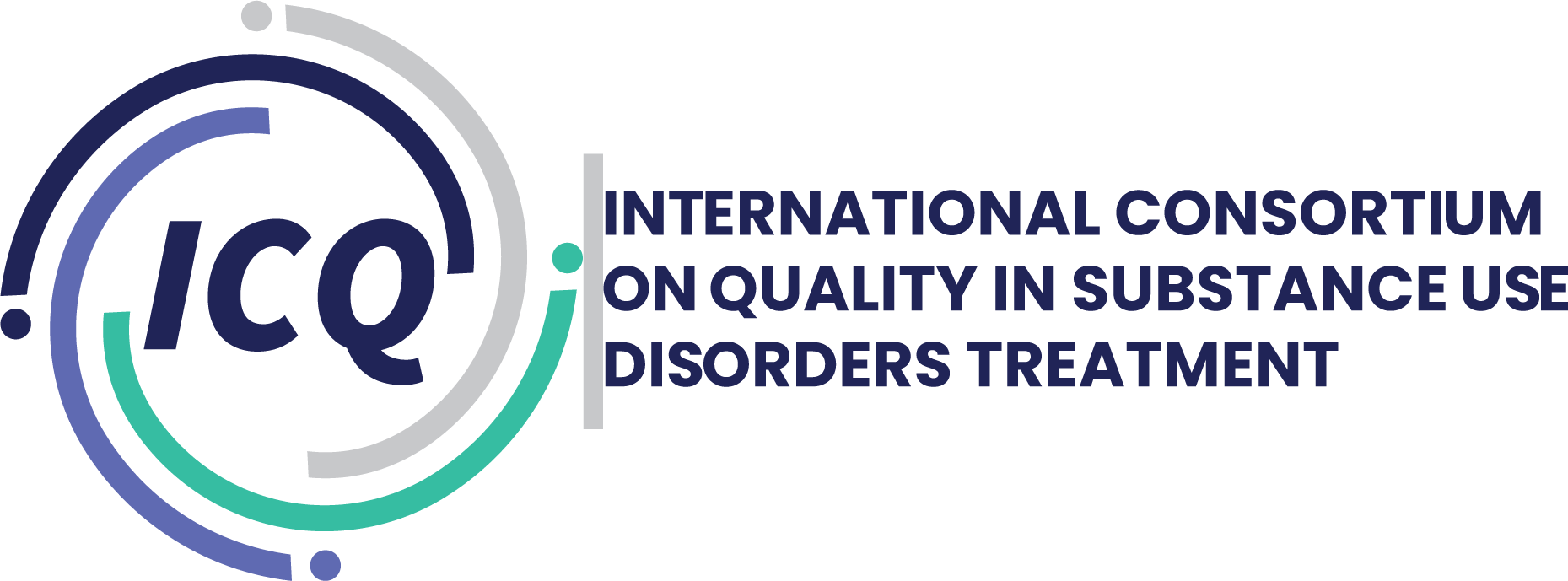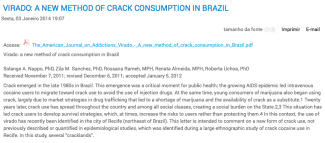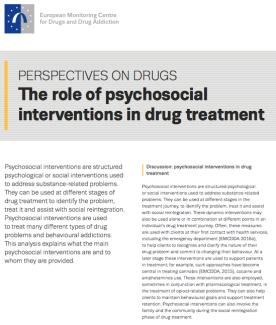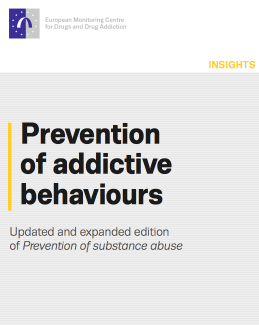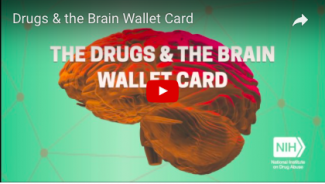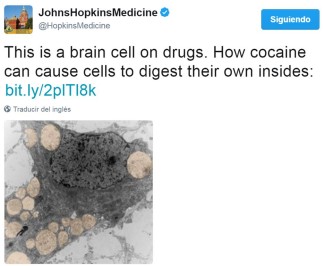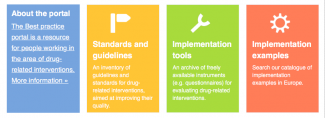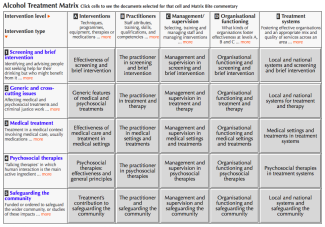Search
Effectiveness Bank Alcohol Treatment Matrix Row 4: The Talking Route to Recovery
The Talking Route to Recovery
Time to consolidate the lessons of last five instalments of the online course on alcohol treatment research. Every treatment involves direct or indirect human interaction, but this row is about therapies in...
'Virado': A New Method of Crack Consumption in Brazil
Crack emerged in the late 1980s in Brazil. This emergence was a critical moment for public health; the growing AIDS epidemic led intravenous cocaine users to migrate toward crack use to avoid the use of injection drugs. At the same time...
US Adult Illicit Cannabis Use, Cannabis Use Disorder, and Medical Marijuana Laws 1991-1992 to 2012-2013
IMPORTANCE: Over the last 25 years, illicit cannabis use and cannabis use disorders have increased among US adults, and 28 states have passed medical marijuana laws (MML). Little is known about MML and adult illicit cannabis use or cannabis...
Higher Taxes Needed to Lower Smoking Rates in South Asia
New research published in The British Medical Journal supports the need to increase taxes on tobacco products in South Asia, suggesting that doing so could reduce consumption by at least 1/3 and, in turn, avoid around 35 - 45 million...
What Is There to Know About Psychosocial Interventions in Drug Treatment?
Psychosocial interventions are psychological or social interventions used to tackle issues related to substance abuse and behavioural addictions. They can be employed to identify and treat problems, as well as to assist with user...
New Publication: EMCDDA’s Prevention of Addictive Behaviours
An updated version of the publication Prevention of Substance Abuse by the European Monitoring Centre for Drugs and Drug Addiction (EMCDDA) is now available in English. Global in scope, it provides an up-to-date review of prevention science...
Global Smoking Rates on Decline Thanks to Demand-Reduction Measures
New research published in The Lancet Public Health suggests that global smoking rates have decreased by 2.5% following the introduction of the global tobacco control treaty. The treaty obligates the 180 countries committed to it to...
Flavours Play Important Role in E-cigarette Uptake Among Younger Populations, Study Finds
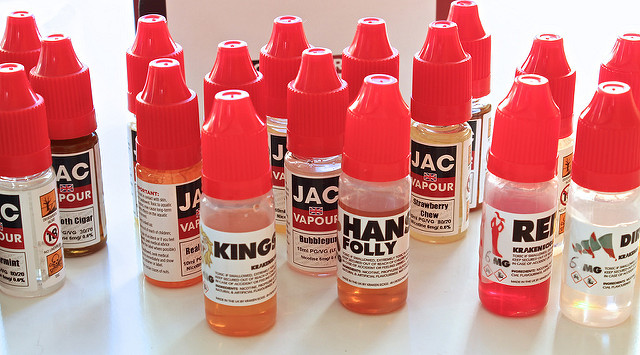
New findings published in the journal Tobacco Regulatory Science suggest that flavoured e-cigarettes appeal particularly to youth and young adults.
From the study's sample population, 99% of 12-17-year-olds and 95% of young adults...
Do Surgical Procedures Increase the Risk of Opioid Dependence?
A new study has found that having surgery may expose patients to a higher risk of developing long-term opioid dependence. According to the investigation, around 6% of people who had not taken opioids prior to their operation but were...
New Resources from the National Institute on Drug Abuse (NIDA)
The National Institute on Drug Abuse (NIDA) has released a number of new resources.
These are aimed at those working within the criminal justice system and other environments where people in recovery from drug addiction are ready to...
Can We ‘Switch Off’ Our Need to Drink Alcohol?
New research by scientists at The Scripps Research Institute (TSRI) may lead to the development of personalised treatments for alcohol dependence. The study evaluated how people’s responses in the brain differ to various therapeutic...
Marijuana Linked to Cardiovascular Problems
Marijuana use may increase the risk of stroke and heart failure.
This was concluded to be the case even after accounting for demographic and lifestyle risk factors, as well as other health conditions.
The new findings on the potential...
Cocaine Elicits Autophagic Cytotoxicity via a Nitric Oxide-GAPDH Signaling Cascade
Abstract
Cocaine exerts its behavioral stimulant effects by facilitating synaptic actions of neurotransmitters such as dopamine and serotonin. It is also neurotoxic and broadly cytotoxic, leading to overdose deaths. We demonstrate that...
New Evidence in Mice That Cocaine Makes Brain Cells Cannibalize Themselves
Working with mice, researchers at Johns Hopkins have contributed significant new evidence to support the idea that high doses of cocaine kill brain cells by triggering overactive autophagy, a process in which cells literally digest their...
Alcohol Consumption as a Cause of Cancer
Background and aims: There is increasing research evidence about the causal role of alcohol in cancer, accompanied by unclear and conflicting messages in the media. This paper aimed to clarify the strength of the evidence for alcohol as a...
ISSUP Mexico 2017
EMCDDA Treatment Standards and Best Practice
Effectiveness Bank Matrix Bite: Psychosocial Therapies in the Treatment System
This is one of 25 cells in the Alcohol Treatment Matrix. The cell discusses key research relating to the roles of psychosocial therapies in local treatment systems. In particular, their role in creating a cost-effective mix of services...
Should Opioid Dependent Patients Receive Immediate Access to Medical Treatment?
New research supported by the National Institute on Drug Abuse (NIDA) has found through a comparison of treatment approaches for opioid dependence that, in an emergency setting, combining the medication buprenorphine with on-going care is...
